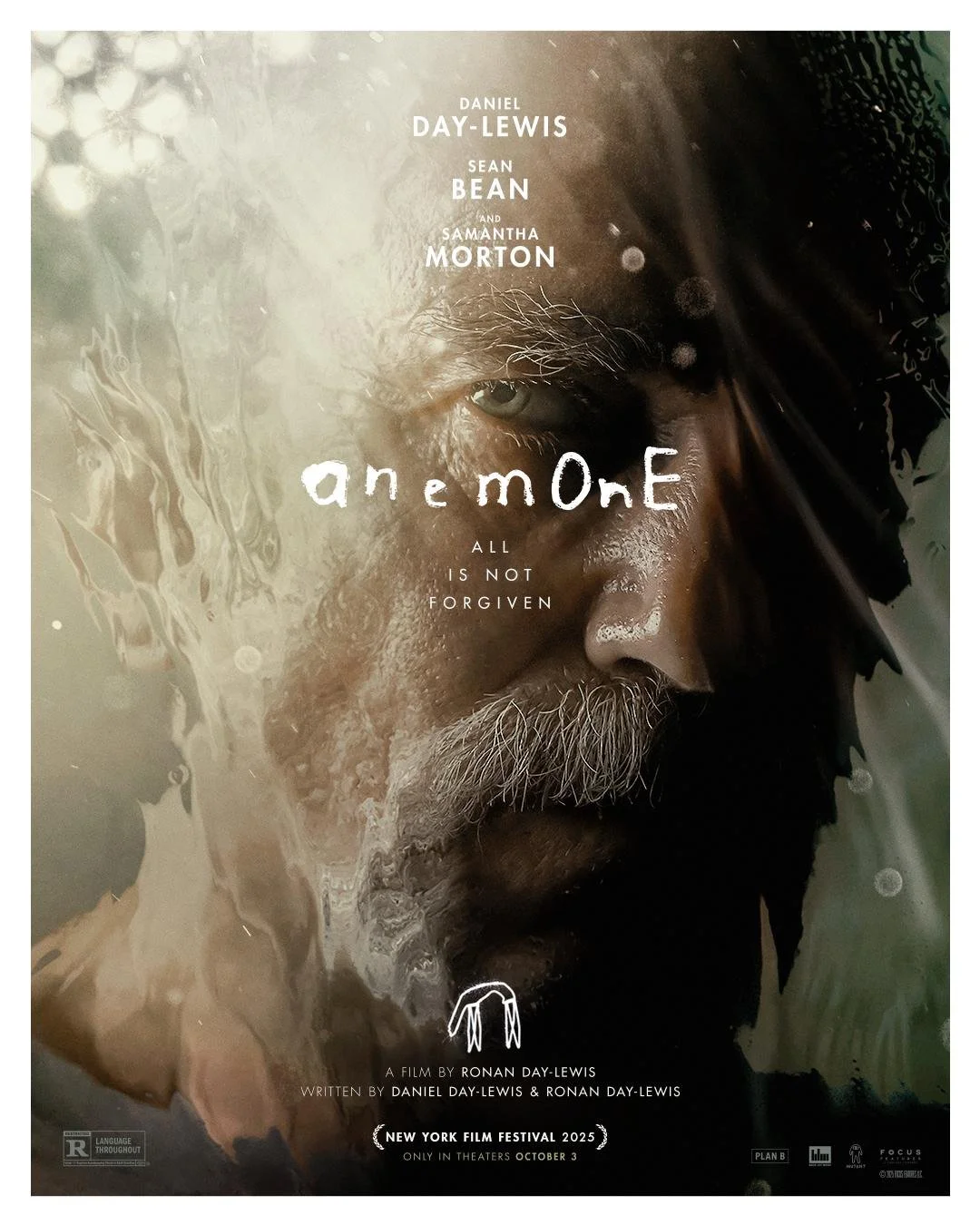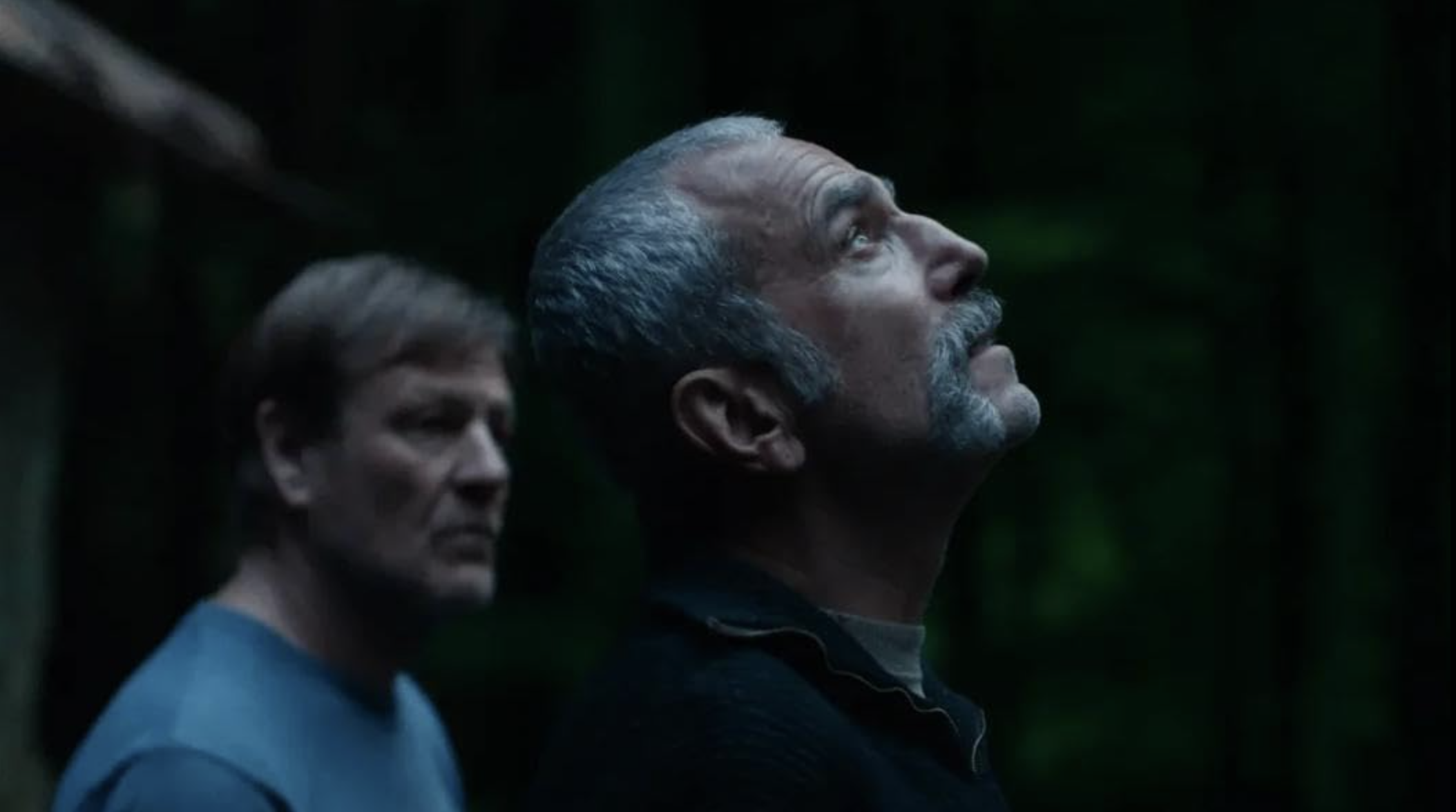Directed by: Ronan Day-Lewis
Written by: Daniel Day-Lewis and Ronan Day-Lewis.
Starring: Daniel Day-Lewis, Sean Bean and Samantha Morton
Runtime: 121 minutes
‘Anemone’ unpacks deep trauma in Daniel Day-Lewis’ big-screen return
What a blessing it is to have Daniel Day-Lewis back on the big screen — even if it means having to stomach his delivery of a 10-minute monologue about defecating on a priest.
The three-time Oscar-winning actor (“My Left Foot,” “There Will Be Blood,” “Lincoln”) retired, to the grief of cinephiles and lovers of fine faces everywhere, after his Oscar-nominated turn as the prissy and precise Reynolds Woodcock in Paul Thomas Anderson’s resplendent 2017 drama “Phantom Thread.” He was only 60 at the time, an unexpectedly early exit for such a celebrated thespian not in want of interesting work.
We have nepotism to thank for his return. Ronan Day-Lewis, 27, directs his father in his first feature-length film from a script they wrote together, the gorgeously outfitted if narratively opaque family drama “Anemone,” named for the delicately petalled white wildflowers reclusive Ray (Day-Lewis) plants around his solitary cottage in the woods. There he lives as a hermit, tending garden and drinking whiskey in his shelter from the howling wind, half-feral with the isolation when he receives an unexpected visit from his brother, Jem (Sean Bean).
“Anemone,” to its credit and detriment, is in no rush to tell you what it’s about, lounging in the languid squalor of Ray’s primitive cottage, asking searching questions with no immediate answers. Jem is prayerful, dutiful, Ray gleefully blasphemous. “You’re going to hell, brother,” Jem says. “Family reunion!” Ray quips in reply.
There are hints like this scattered like breadcrumbs in a dark wood of Ray’s motivation for solitude, suggestions of trauma levied by the brothers’ father, the church and the Troubles. American audiences might struggle to grasp the intimations; a keen grip on the socio-political landscape of 20th century Britain and Ireland, though, helps reveal “Anemone” as a trauma narrative. Slowly, over drunken evenings, midnight dance parties and the occasional brotherly fistfight, it is revealed that Jem is the dutiful husband to Ray’s abandoned wife Nessa (Samantha Morton) and father-figure to Ray’s likewise abandoned son Brian (Samuel Bottomley) and has come to try to entice Ray back to his family and help his son, who’s beginning to unravel as he enters young adulthood.
It’s beyond cliché to say that some actors can make even reading a phone book interesting. Day-Lewis does us one better and makes that interminable priest-defection monologue feel like high art. “Anemone” is an unsurprisingly actorly film, its patient silence interrupted by stitched-together monologues: Day-Lewis, Bean and Morton are given space and time to stretch their powers so that even when the elusive narrative frustrates, the characters keep you invested.
It's not an insult to call “Anemone” a nepotistic endeavor, merely an observation. How else could a 20-something first-time filmmaker entice actor Day-Lewis out of retirement? But “Anemone” deserves to be engaged with sincerely. Director Day-Lewis approaches the subject of trauma — both personal trauma and historical trauma — in visually striking ways. With an assist from cinematographer Ben Fordesman, who also shot the unsettlingly pretty, emotionally ugly films “Love Lies Bleeding” and “Saint Maud,” “Anemone” interweaves the simple drama unexpected phantasmagorical elements. Strange woodland creatures, spectral visitations and violent weather events serve as gorgeous, unnerving harbingers, portals into the tortured characters’ states of mind.
There is a whiff of wet-behind-the-ears pretension to some of it, but when everything works in harmony, “Anemone” moves like a prize fighter, dancing around the point for what feels like ages then delivering a knockout uppercut.
Barbara’s ranking
2.5/4 stars












